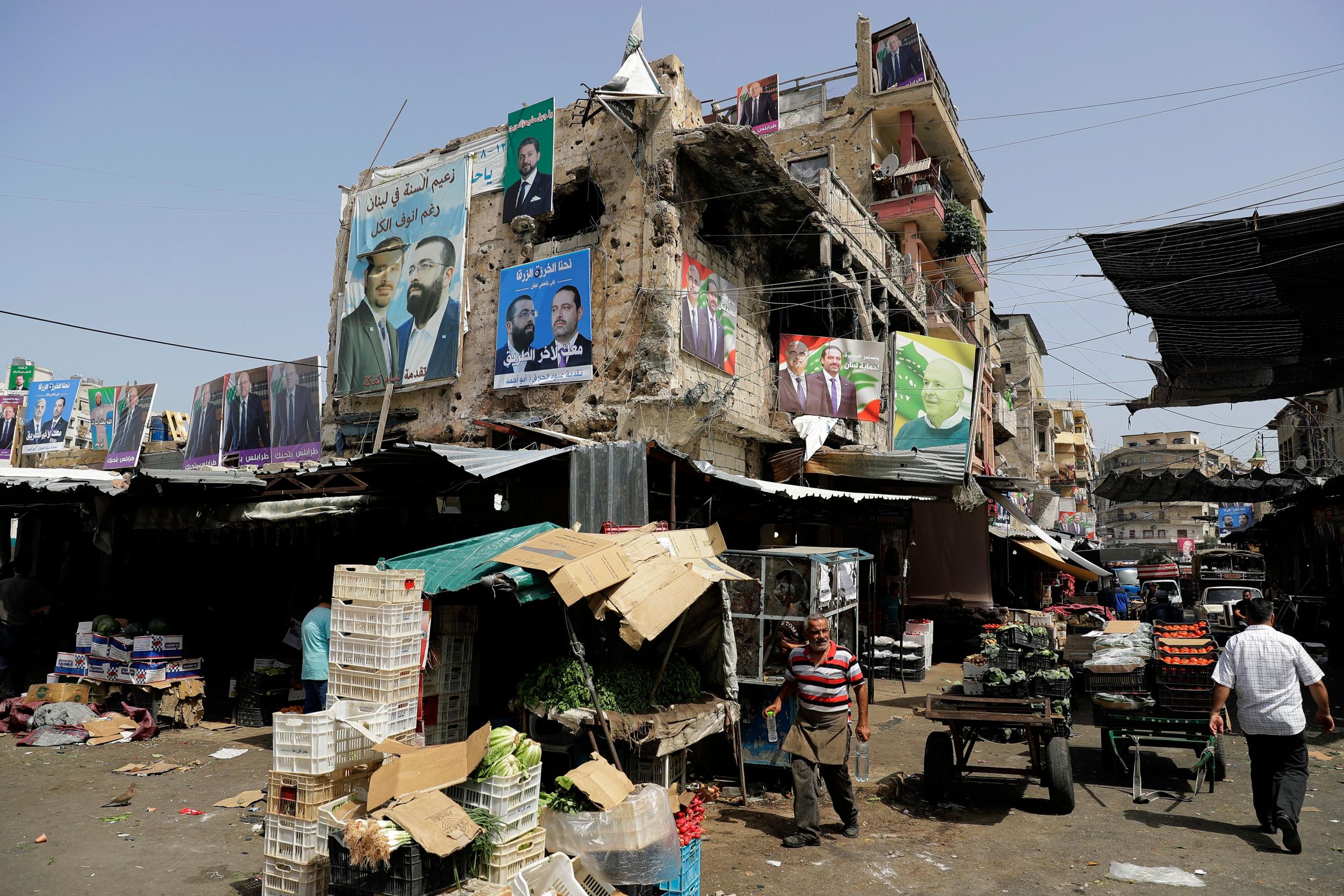Lebanon debuts proportional system as it holds first elections in almost a decade
The Lebanese people are heading to the polls this weekend for the first time since 2009. But the more things change, the more they stay the same

Lebanon is a colourful place at the moment. Spring has been unusually warm; the hillsides above Beirut are green and the pink and purple blossom of bougainvillea and jacaranda trees drift down onto the city’s streets.
The plethora of new political flags and posters, however, is definitely more eye-catching.
On Sunday Lebanon’s diverse population of six million will cast their votes for the first time since 2009 in a national election which should end almost a decade of political gridlock.
The new elections come with a set of complicated new rules designed to move Lebanon towards a proportionally representative system for the first time, allowing space for more independents and reducing the power of establishment blocs formed by the country’s multiconfessional political system.
Critics, however, say that since the new electoral law asks voters to pick lists of allied sects and parties, as well as prioritise individual candidates on the list of their choice, it accentuates the already divisive tendencies of Lebanon’s complex politics by making candidates on the same slates compete with each other.
“Like almost every law on the books in Lebanon, the way it looks on paper is very different to how it is applied or fairly administered in practice,” said Imad Salameh, a professor of politics at Beirut’s Lebanese American University.
“We are injecting into the normal proportional system this Lebanese twist. Parliament is unlikely to change too much. But it is a step in the right direction.”
Lebanon’s politics – which involves 18 officially represented sectarian groups – is famously complicated.
The filth and the fury: A mountain of rubbish is blighting Lebanon's once-beautiful beaches
Show all 2In the Christian villages just below the cedar forests of north Lebanon’s Tannourine, huge posters of the Christian president, Michel Aoun, are currently hung underneath tens of Shia Hezbollah’s distinctive yellow flag, green fists brandishing AK-47s.
Some of the country’s more surprising political partnerships – such as that of the recently elected Mr Aoun and Lebanon’s Sunni prime minister, Saad Hariri – say a lot about how Lebanon’s internal politics are still intrinsically linked to its position in the region and the Middle East’s wider power struggles.
Lebanese media has been dominated in recent weeks by pundits angry that the country’s biggest issues – the heavily indebted economy, the disarmament of Hezbollah, Syrian refugees and crises in public services such as electricity and garbage – have for the most part been sidelined by the major parties, who are too preoccupied with forging allegiances to maintain the status quo to assure voters they will do what’s best for the country.
Analysts believe that the reaction of Iran and the administration of US President Donald Trump – both of which have proxy interests in Lebanon – will depend on other events across the region.
“The problem is, the Trump administration and Iran will treat the election results depending on so many other factors,” said Mohaned Hage Ali of the Carnegie Middle East Centre.
“There’s so much happening in May in the region alone. We will still be counting the votes, probably, when Trump pulls out of the Iran deal, and Iraq holds its own elections, which may change a lot in the Shia power balance there.
“Our future is dependent on many variables outside our control.”
The rest of the Middle East casts a long shadow on the tiny country. Internally, so do ongoing rows over gerrymandering, conflicts of interest, party funding and the steep cost for independents for running a slate.
Despite all that, however, there is still a sense of optimism among many young people in Lebanon – 800,000 of whom are excited to cast a vote for the first time.
A record number of women are running this year and civil society movements aimed at educating people about their democratic rights are flourishing.
“The best way of looking at these elections is: they are an exercise for the new blood in Lebanese politics and new candidates and movements popping up everywhere to try contest the sectarian establishment and elite,” said Mr Ali.
“It is building up some sort of new independent movement for the next round. It’s a long process, and there’s a long way to go.”
Subscribe to Independent Premium to bookmark this article
Want to bookmark your favourite articles and stories to read or reference later? Start your Independent Premium subscription today.

Join our commenting forum
Join thought-provoking conversations, follow other Independent readers and see their replies